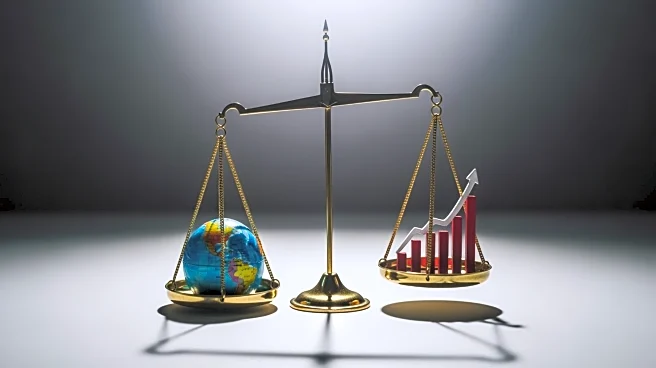What's Happening?
The deputy governor of Thailand's central bank has expressed concerns over the renewed trade tensions between the United States and China, which pose significant risks to Thailand's economic growth. President
Trump recently threatened to impose 100% duties on Chinese goods, escalating the trade war between the two largest economies. This development is particularly concerning for Thailand, as both the U.S. and China are major trading partners. The central bank forecasts lower growth rates for Thailand, and policymakers have opted to keep interest rates steady despite economic challenges such as a strengthening baht and negative inflation.
Why It's Important?
The escalation of trade tensions between the U.S. and China could have far-reaching implications for global economies, particularly those heavily reliant on exports like Thailand. The potential for increased tariffs and trade barriers may disrupt supply chains and lead to economic instability. For Thailand, maintaining stable growth amidst these challenges is crucial, as the country navigates issues like currency fluctuations and inflation. The situation underscores the interconnectedness of global economies and the impact of major trade policies on smaller nations.
What's Next?
Thailand's central bank plans to focus on financial measures and collaboration with fiscal authorities to support the economy. This includes debt restructuring schemes and loan guarantees to improve access to credit for households and small businesses. The bank aims to address constraints beyond funding conditions, as traditional monetary policy tools may have limited effectiveness. The ongoing trade tensions may prompt further adjustments in Thailand's economic strategies and international trade relations.
Beyond the Headlines
The trade tensions highlight the vulnerability of smaller economies to geopolitical shifts and the importance of diversifying trade partnerships. Thailand's experience may serve as a case study for other nations facing similar challenges. Additionally, the situation raises questions about the role of central banks in managing economic stability amidst external pressures, and the need for innovative policy solutions.











